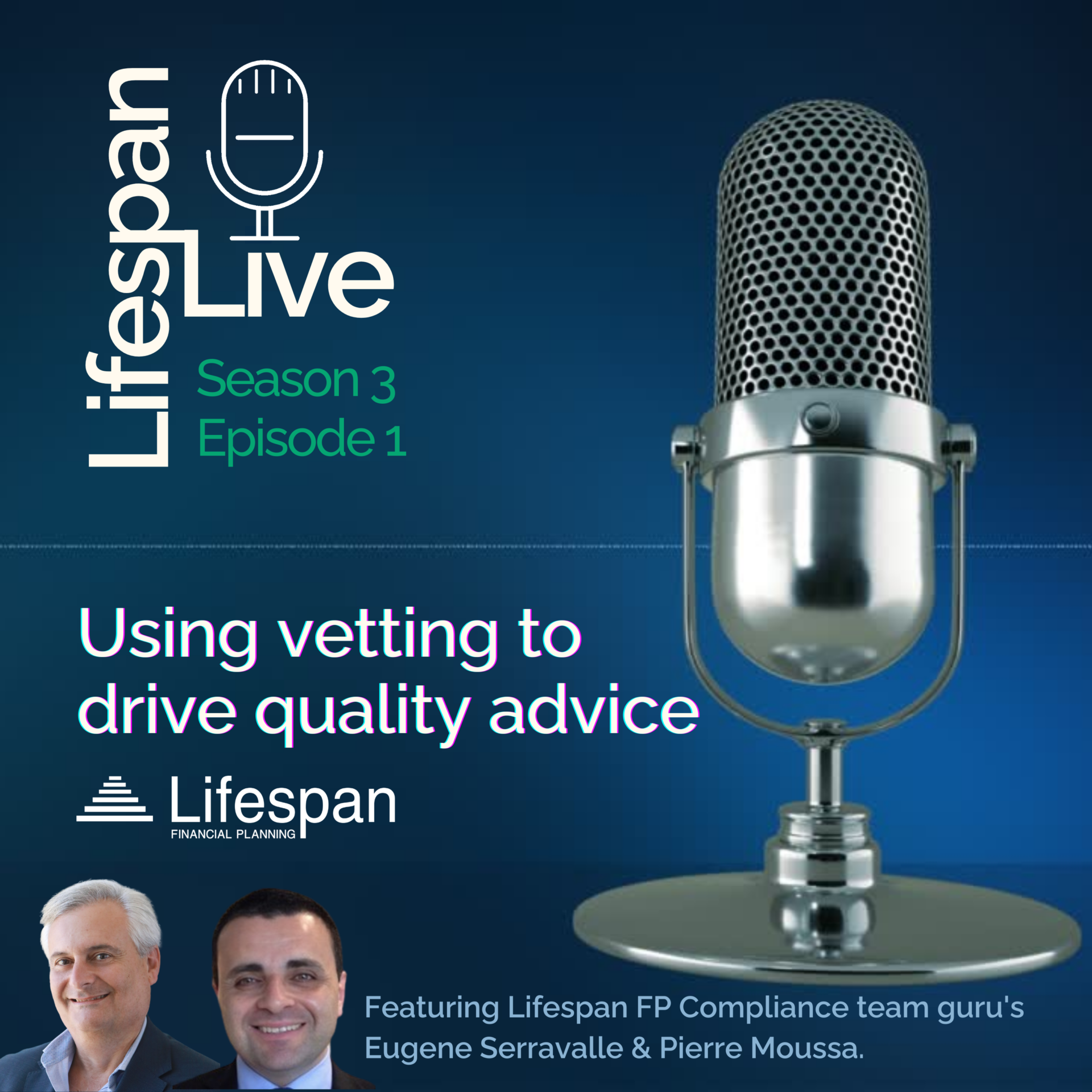In Season 3, Episode 1 of Lifespan Live, Eugene Serravalle, Lifespan FP General & Compliance Manager, and Pierre Moussa, Lifespan FP Senior Compliance Specialist, discuss the various ways that plan vetting can benefit both advisers and their clients.
Eugene and Pierre discuss the role of a good compliance team and the importance of approaching compliance with an adviser’s mindset, to ensure quality advice outcomes.
At Lifespan we are proud of the compliance-focused support that we provide to our adviser community. As a licensee we believe in making every aspect of running an advice business simpler – by sharing the burden of regulatory changes with our advisers and providing a robust and reasonable approach to compliance.
We see the role of a good compliance team is to primarily recognise the value that our advisers seek to add to their client’s and their family’s lives. By having this mindset, we are more likely to assess and review the advice from the adviser’s point of view. From a practical sense, our role is to help advisers navigate through complexity and empower them to confidently explore strategies that are tailored to their client’s current and future needs.
Whilst always ensuring our advisers adhere to legislative and Lifespan policy requirements, we want to give advisers support and freedom to thrive. This is our motto at Lifespan and it provides an insight into our approach to compliance.
Whilst some of the larger licensees seem to have rigid standards in place for various reasons, they could be seen as overcompensating to mitigate as much potential risk as possible. On the other hand, we are flexible in entrusting our advisers and will always support innovative strategies, as long as they adhere to the legislative and licensee requirements – and ASIC’s interpretation – given that we are mainly steered by resources such as RG175, RG244 and other ASIC guidance.
Also, the emphasis should be on the team, whereby our advisers and their staff receive the benefit of the sum of our experience in providing and reviewing advice, across licensees that span various sizes and business models. We work together by sharing ideas and discussing strategies, both informally and in regular compliance meetings.
What is also different about the Lifespan compliance team, is that we are involved in vetting, assurance, technical, complaints, incidents, adviser onboarding, advice coaching and adviser presentations. This means you are working with more well-rounded compliance team.
Another role of a good compliance team is to recognise that our advisers are our best resource as they are interacting with, and building relationships with clients, which is why we are all here, so it is important to listen to them. We are continually raising matters in our compliance meetings that have been initiated by adviser feedback.
A good compliance team also needs to expect change in the industry and take an agile approach, always being ready to adapt to how legislation, technology and community expectations can alter the world of advice.
Much of this podcast focuses on the vetting function of our compliance team. This is where advisers send us their advice documents for approval, prior to presenting to their clients. We also have a post-vetting function, which is offered to advisers once they demonstrate a consistently strong level of advice quality.
Whilst some may think we are too controlling because we check every advice document, we believe the reality is the opposite. This is what allows us to be flexible, by not vetting to a set checklist or scorecard like many other licensees, we take an open-minded view to what advisers are proposing.
We look to say ‘Here are the client’s goals, these are the adviser’s strategies, and these are how the goals are being met and then adviser has demonstrated that the client is in a better position.’ Then we ask ‘Is there anything here that does not meet requirements?’, rather than relying on pre-prescribed check boxes. Quite often we will also discuss the strategies with the advisers.
This allows us to look at advice from a more practical and flexible view, to guide, help advisers navigate complexity, and to ensure that compliance does not present roadblocks that impact the adviser’s ability to provide quality, efficient advice.

